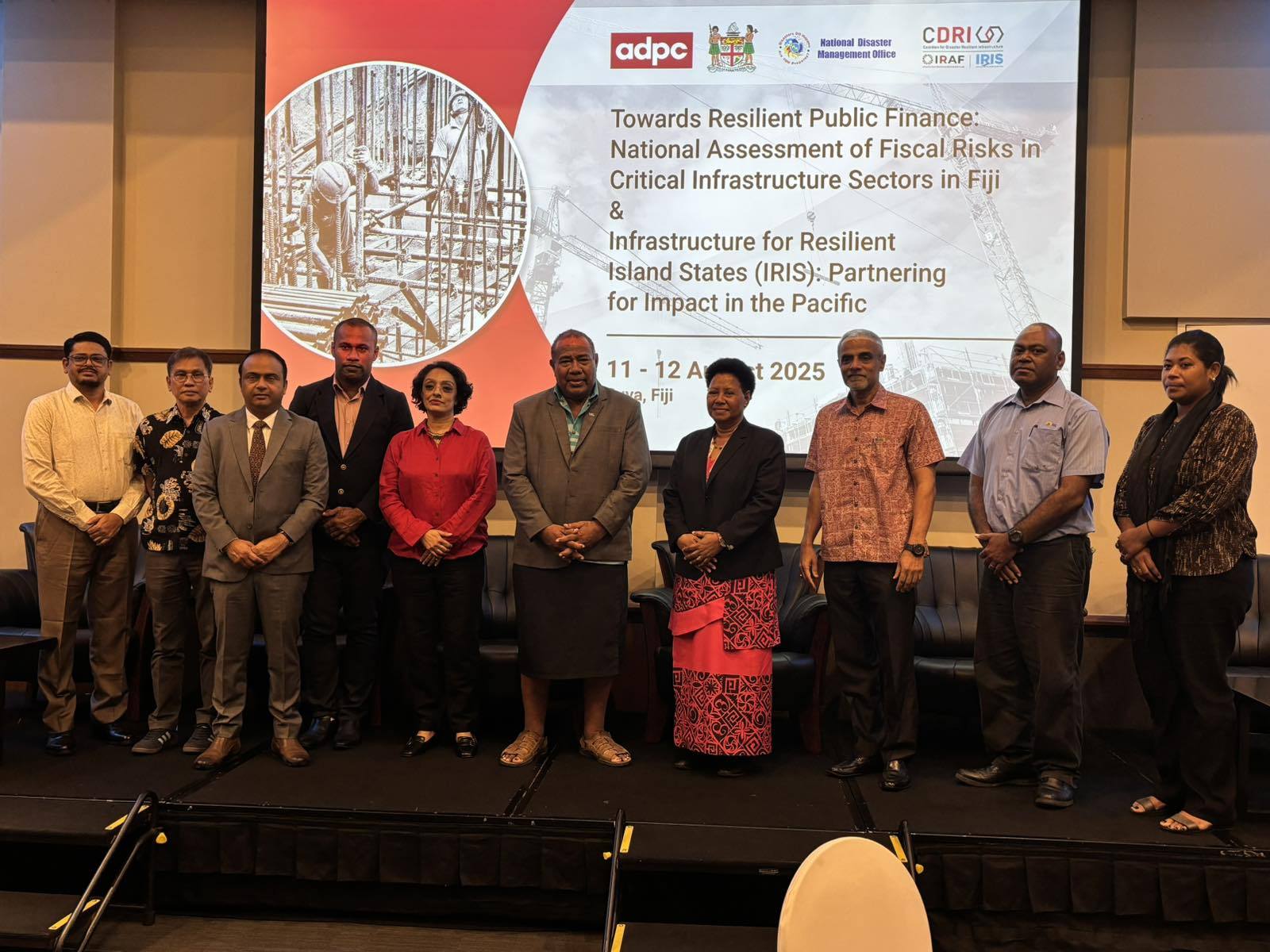The Permanent Secretary for the Ministry of Public Works, Meteorological Services and Transport, Mr. Paula Baleilevuka, has called for stronger collaboration, innovative financing, and community-driven action to strengthen Fiji’s infrastructure resilience against disasters.
Speaking on the second day of the National Workshop on Assessment of Fiscal Risks Due to Disasters in Critical Infrastructure Sectors, Mr. Baleilevuka highlighted the Infrastructure for Resilient Island States (IRIS) programme as a key partner in building Fiji’s capacity to withstand and recover from natural hazards.
“Through IRIS, Fiji is not only bolstering road and transport systems, but also improving preparedness across utilities, telecommunications, housing, and coastal protection,” he said. “We must leverage this momentum to integrate resilience into every sector of our national development.”
IRIS, a flagship initiative of the Coalition for Disaster Resilient Infrastructure (CDRI), was launched at COP26 to support Small Island Developing States (SIDS) through grants, technical expertise, and capacity building. Backed by donor commitments of USD 40–50 million from partners including India, the United Kingdom, the European Union, and Australia, IRIS focuses on country-driven projects in areas such as resilient building codes, nature-based solutions, and integrated disaster warning systems.
A key Fiji-based IRIS project developed in collaboration with the Fiji Meteorological Service, Live & Learn Fiji, and the National Disaster Management Office aims to map, assess, and plan for a comprehensive Multi-Hazard Early Warning System. This will merge tsunami, storm, and flood alerts into a unified platform, improving response times, public communication, and institutional preparedness.
Mr. Baleilevuka urged government agencies, development partners, and communities to:
![]() Leverage the IRIS funding pipeline for projects aligned with the Sustainable Development Goals and the Sendai Framework for Disaster Risk Reduction.
Leverage the IRIS funding pipeline for projects aligned with the Sustainable Development Goals and the Sendai Framework for Disaster Risk Reduction.
![]() Integrate fiscal safeguards into infrastructure planning, ensuring budgets include contingencies for climate and disaster risks.
Integrate fiscal safeguards into infrastructure planning, ensuring budgets include contingencies for climate and disaster risks.
![]() Foster cross-agency collaboration so that ministries and sectors align in infrastructure risk assessments and resilience strategies.
Foster cross-agency collaboration so that ministries and sectors align in infrastructure risk assessments and resilience strategies.
“This workshop is more than a meeting it is a launchpad for resilient fiscal stewardship and infrastructure security in Fiji and across the Pacific,” he said. “By acting now, we not only reduce disaster losses, but we also safeguard our economic, cultural, and environmental assets for future generations.”
The two-day workshop brings together local and international experts, government officials, and development partners to strengthen Fiji’s disaster risk frameworks and build a pipeline of resilient infrastructure projects for the Pacific region.



